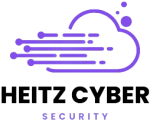In today’s digital age, your personal information is one of your most valuable assets—and also one of the most vulnerable. With every click, you leave a trail of data that can be exploited by cybercriminals, advertisers, and even government entities. Protecting your privacy online is essential not only for avoiding identity theft but also for maintaining control over your personal data. Here are some key strategies to help safeguard your privacy on the internet.
1. Use Strong, Unique Passwords
One of the easiest ways to protect your online privacy is by using strong, unique passwords for each of your accounts. Weak passwords are the first point of entry for hackers, so avoid using common phrases or easily guessable information like birthdays or names. Instead, opt for a mix of uppercase and lowercase letters, numbers, and special characters. Consider using a password manager to store and generate complex passwords, so you never have to rely on the same one twice.
2. Enable Two-Factor Authentication (2FA)
Two-factor authentication adds an extra layer of security to your online accounts by requiring you to verify your identity through two different methods. This could be a text message with a code, a fingerprint scan, or an authentication app. Enabling 2FA can make it significantly harder for attackers to gain access to your accounts, even if they have your password. It’s a simple step that can dramatically increase your privacy protection.
3. Use Secure Browsing Practices
When browsing the internet, it’s crucial to take steps to secure your online activity. Always look for “https” in the URL of websites, which indicates that your connection is encrypted and more secure. Avoid using public Wi-Fi networks for sensitive activities, such as online banking, as these can be a target for cybercriminals. When necessary, use a Virtual Private Network (VPN) to protect your data from being intercepted while browsing on public networks.
4. Be Cautious with Your Personal Information
Be mindful of how much personal information you share online. Avoid oversharing on social media platforms or entering sensitive data on websites that may not be secure. Cybercriminals often gather information from multiple sources to piece together a detailed profile of their targets. If you don’t need to provide personal details, such as your full name or address, don’t. The less you share, the harder it will be for malicious parties to exploit your data.
5. Protect Your Devices with Anti-Virus Software
Installing robust anti-virus software is one of the most effective ways to safeguard your privacy. Heitz Cyber Security provides real-time protection against malicious threats, including spyware and malware, which are commonly used to collect and steal personal information. Our anti-virus software scans your system for vulnerabilities and blocks harmful programs from infiltrating your device, keeping your data safe from prying eyes.
6. Regularly Review Your Privacy Settings
From social media platforms to online shopping sites, most websites allow you to customize your privacy settings. Take the time to review and adjust these settings to ensure you are only sharing the information you want to share. You can limit who sees your posts on social media, control location tracking, and even restrict how advertisers can use your data.
7. Stay Updated and Educated
Cyber threats are constantly evolving, and staying informed is key to safeguarding your privacy. Make sure your operating system, browsers, and apps are always up-to-date with the latest security patches. Additionally, educate yourself about common online threats, such as phishing and data breaches, so you can recognize them when they arise and take steps to avoid falling victim.
Protecting Your Privacy with Heitz Cyber Security
While these steps can help safeguard your privacy, having the right tools is essential to ensuring complete protection. At Heitz Cyber Security, we offer advanced anti-virus software that actively monitors and protects your data in real-time. Our software provides continuous defense against online threats, including malware, phishing attempts, and data breaches, allowing you to browse with confidence and peace of mind.
By adopting these privacy protection practices and using reliable anti-virus software, you can significantly reduce your risk of online privacy violations. Start taking control of your data today with Heitz Cyber Security—your trusted partner in maintaining privacy and security online.

